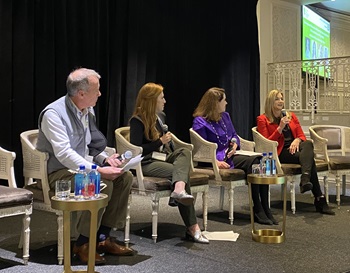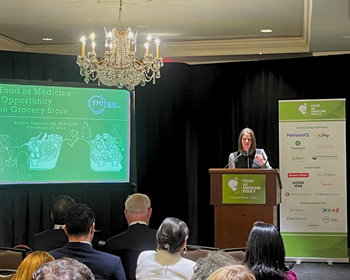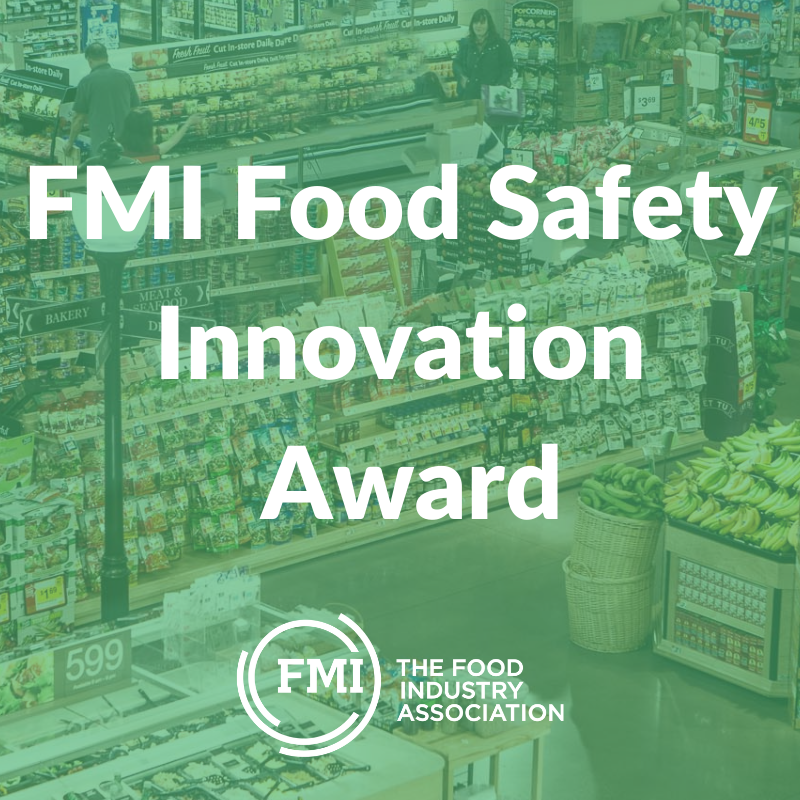By: Krystal Register, MS, RDN, LDN, Senior Director, Health & Well-being, FMI
 The recent Food as Medicine Policy Summit held in Washington, DC, brought together 250 executives, stakeholders, and thought leaders from the food and beverage industry, government, academia, health care sector and nonprofit organizations to explore opportunities and challenges for Food as Medicine programs. Topics discussed included: expansion of access, reimbursement issues, research and data needs, cultural considerations, community-based partnerships, healthcare systems, policy and the importance of collaboration and continued discussion.
The recent Food as Medicine Policy Summit held in Washington, DC, brought together 250 executives, stakeholders, and thought leaders from the food and beverage industry, government, academia, health care sector and nonprofit organizations to explore opportunities and challenges for Food as Medicine programs. Topics discussed included: expansion of access, reimbursement issues, research and data needs, cultural considerations, community-based partnerships, healthcare systems, policy and the importance of collaboration and continued discussion.
From a registered dietitian nutritionist (RDN) perspective, there was overwhelming support for the RDN involvement in Food as Medicine program development and execution. Many speakers recognized the importance of leveraging the knowledge, expertise and services of RDNs, and were repeatedly supported with applause from the audience. Along these same lines, the Medical Nutrition Therapy Act was also addressed many times as a potential catalyst for the expansion of reimbursable services and increased referrals to RDNs, again with audible support from the audience.
After the opening session, a question raised by an audience member stuck with me: “Getting healthy food into homes is just part of the work, what are you doing to educate consumers and patients about how to prepare, cook, eat and store the food?” This question connected directly to my presentation later in the day on the opportunity for food as medicine programs in the grocery store setting.
When Food as Medicine programs, such as produce prescriptions, nutrition incentives and medically tailored nutrition, are executed in the grocery store, they are directly supported by the work of registered dietitians connecting with consumers to personalize choices and support behavior change with guidance on shopping, cooking and eating. The combination of these program models in the grocery store setting, with RDN involvement, ultimately provides a return on investment for key stakeholders and improves health outcomes.

During a panel on defining the Food as Medicine ecosystem, Emily Rider, RDN, LD, Nutrition Program Development Manager with Kroger, emphasized the importance of leveraging the expertise of RDNs and the impact of providing personalized education at the point of purchase. She reiterated the notion that the grocery store provides the perfect intersection of food and nutrition to improve health. Emily described MNT as “the art of combining the many complexities of life,” explaining how RDNs take many factors into account to ensure that recommendations are practical, personal and culturally relevant.
FMI Chief Public Policy Officer Jennifer Hatcher participated in a panel discussion on driving Food as Medicine policy in a meaningful way. Jennifer was on stage alongside Stacy Bates, RDN, CDE, Director of Wellness Nutrition Services with H-E-B, and together they shared opportunities for the food industry and challenges from a policy perspective. Jennifer emphasized the importance of crafting Food as Medicine programs that are seamless for shoppers, scalable for food retailers of any size, efficient for grocers operating on slim profit margins and measurable to show positive results for sponsors. Stacy added that we need to meet customers where they are to help move them along and best support these initiatives.
To learn more about the role of the grocery store and food retail program models:
The Food as Medicine Opportunity in Food Retail
Food as Medicine - Academy of Nutrition and Dietetics Foundation


 Industry Topics address your specific area of expertise with resources, reports, events and more.
Industry Topics address your specific area of expertise with resources, reports, events and more.
 Our Research covers consumer behavior and retail operation benchmarks so you can make informed business decisions.
Our Research covers consumer behavior and retail operation benchmarks so you can make informed business decisions.
 Events and Education including online and in-person help you advance your food retail career.
Events and Education including online and in-person help you advance your food retail career.
 Food Safety training, resources and guidance that help you create a company food safety culture.
Food Safety training, resources and guidance that help you create a company food safety culture.
 Government Affairs work — federal and state — on the latest food industry policy, regulatory and legislative issues.
Government Affairs work — federal and state — on the latest food industry policy, regulatory and legislative issues.
 Get Involved. From industry awards to newsletters and committees, these resources help you take advantage of your membership.
Get Involved. From industry awards to newsletters and committees, these resources help you take advantage of your membership.
 Best practices, guidance documents, infographics, signage and more for the food industry on the COVID-19 pandemic.
Best practices, guidance documents, infographics, signage and more for the food industry on the COVID-19 pandemic.
